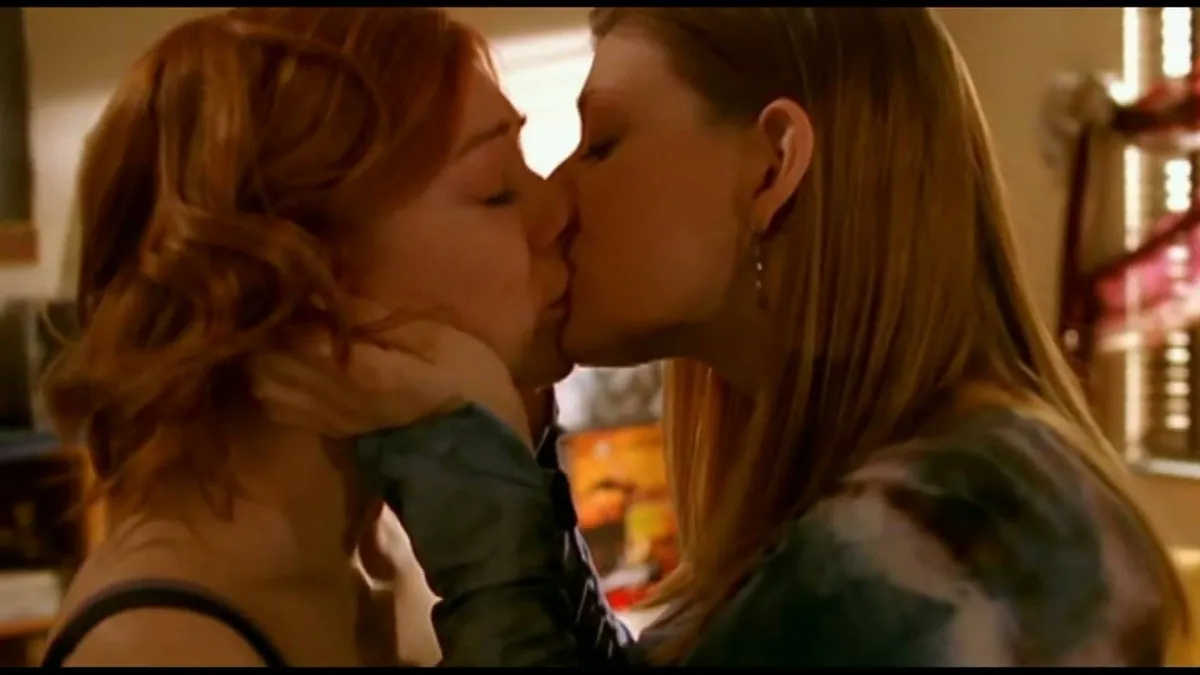(Spoilers for this past weekend’s The Walking Dead to follow.)
Last Sunday, The Walking Dead killed off ten characters in a not-so-uncharacteristic move. One of these characters was Tara (Alanna Masterson), a character who’s been on the show for five seasons and who was the first lesbian character introduced on the show. Coming on the heels of the death of Tom Payne’s Jesus, another openly gay character, some have accused the show of burying its gays, which I think is a fair assessment despite introducing two new queer characters and the continued survival of Aaron (Ross Marquand).
Showrunner Angela Kang responded to the blowback to The Hollywood Reporter, as reported by ComicBook.com. “For our writers who are LGBTQ, it’s something that mattered to them as well. We have a lot of wonderful diversity and representation on the show, and that’s something we’re very proud of,” Kang said. “For a show that deals with issues of life and death and people who have heroic and surprising ends, it’s hard because almost anyone you kill on our show or write out is going to be part of some underrepresented group on TV. I wish all of TV would step up as well. We just tend to get a lot of attention for it.”
She added: “We still have multiple series regulars who are LGBTQ characters. It’s hard, because we love representation. It’s important to us, both in front of and behind the camera. We can’t carry the entire load of representation for all of entertainment. We have to be able to tell our stories as well. It’s part of the story, that everyone’s impacted by these characters.”
Herein lies the problem. A show like The Walking Dead will always kill off characters. A character’s sexuality shouldn’t be a catch-all shield against doom and death. But when there are so few gay characters in genre television across the board, especially horror, these deaths sting because they’re depriving audiences of important representation. Without these character stories being told, we lose a chance at visibility.
The Walking Dead, with three queer characters, is a step above most shows, even as Jesus and Tara meet their untimely ends. We’re starting to see more and more queer characters represented in shows, as opposed to just one token character who somehow magically finds themselves killed during sweeps week. But that’s not always the case.
Take one of the most famous lesbian television deaths: Tara (Amber Benson) in Buffy the Vampire Slayer. There’s no other way to put it: she was fridged by a bullet meant for a straight character, dying to make her girlfriend go evil. Tara was a classic example of burying one’s gays, because her death was really just to make the straight characters sad and her partner take a dark turn. Ending a lesbian love story in tragedy is not exactly forward thinking, especially since she died shortly after reuniting with her partner and them having sex.
There’s also The 100 and Lexa (Alycia Debnam-Carey) being killed to motivate Clarke (Eliza Taylor) and make her sad. The fact she also died pretty much immediately post-sex is also a harmful trope. There have to be better ways of showing angst and motivating characters than just fridging same-sex love interests or gay characters when they are few and far between, or immediately after two female characters consummate their relationship.
This also applies to evil lesbian characters. In season one of Jessica Jones, Jeryn Hogarth (Carrie-Ann Moss) became Marvel’s first openly gay character to play a major role in a series (there were a couple of queer Agents of SHIELD characters who, also, died). Hogarth was cunning, manipulative, and also helped the villain before being attacked and tortured by her spurned ex-wife, who was killed by her current girlfriend. Hogarth let her girlfriend take the fall for the murder. For Marvel to have their first major lesbian player to be that evil, and to subject two other queer women to such mistreatment, shows a lack of respect for the community.
To ask for every character on a show to be part of the LGBTQ community in the present climate would be a silly wish. But if there were more than one character per show, and these characters weren’t killed off while heterosexual characters were, on the whole, seemingly safer, then it becomes a problem. It is not enough to simply have these characters in your show, they have to be allowed to have full stories and not just shock value deaths.
The Walking Dead is a show based around death. But when Rick Grimes stays alive despite being written off and Jesus and Tara die, that’s a problem. We need to examine the way we treat LGBTQ characters, not just in including them but how we write them too. It cannot be lip service. It has to be given the same narrative commitment as writing straight characters. Let queer characters be characters, let them fall in love, and sometimes let them live.
Once we have more parity in genre fiction, then their deaths won’t be as terribly painful. But when the few scraps of representation we do have get killed off, then it becomes a problem, especially if straight characters get to live. Think on what you write, and don’t just turn to harmful tropes.
(via Comic Book, image: Fox)
Want more stories like this? Become a subscriber and support the site!
—The Mary Sue has a strict comment policy that forbids, but is not limited to, personal insults toward anyone, hate speech, and trolling.—









Published: Apr 5, 2019 02:41 pm